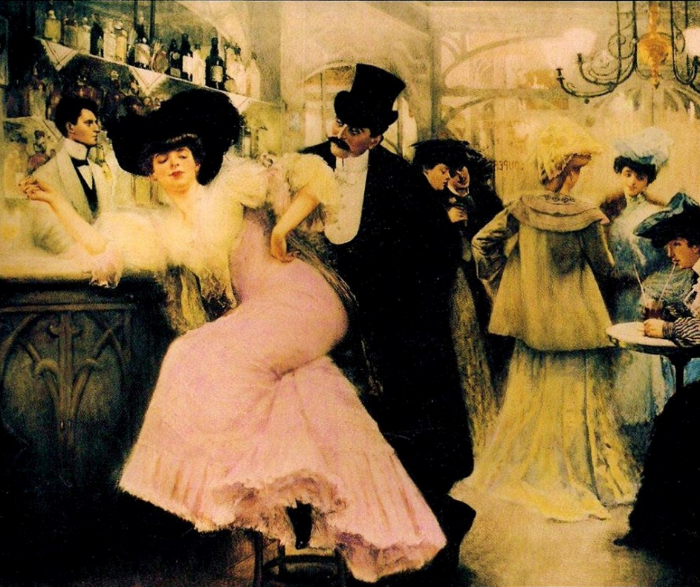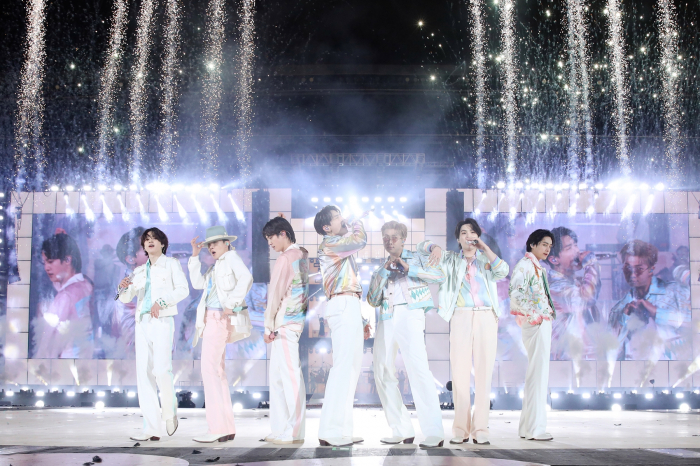The KED View
Springtime hopeful for K-Culture’s continued Belle Époque
By Mar 17, 2022 (Gmt+09:00)
4
Min read
Most Read
LG Chem to sell water filter business to Glenwood PE for $692 million


KT&G eyes overseas M&A after rejecting activist fund's offer


Mirae Asset to be named Korea Post’s core real estate fund operator


StockX in merger talks with Naver’s online reseller Kream


Meritz backs half of ex-manager’s $210 mn hedge fund



In the spring of 2020, the South Korean stock market was still not over the COVID-19 scare.
While going through the indices, I came across the KidariStudio Inc. shares and the name piqued my interest. It turned out to be a webtoon company.
I was aware of webtoons to the extent that those of us over the age of 40 went into physical stores with comic book collections to read manhwa but the younger generation pays online to read webtoons instead.
The fact that it could generate tens of billions of won a year in revenue fascinated me. And with that, I wrote an article about the company when its stock prices hovered between 5,000 to 6,000 won per share. The share price has tripled since then.
The COVID-19 infection rate is renewing its record highs in South Korea.
It did occur to me, however, that we might even reminisce about a slice of this period fondly – the way the French look back on La Belle Époque. Literally meaning "The Beautiful Age,” it refers to the period of settled and comfortable life preceding World War I.
CULTURE AS CASH COW
During the height of COVID-19, what I would like to dub 'K-Culture' blossomed.
Last year, Oxford Dictionary listed the Korean word ‘manhwa’ as one of the year’s new additions and defined it as: "A Korean genre of comic books and graphic novels."
This is the result of the expansion of South Korean webtoons thanks to their limitless imaginations.
K-dramas based on webtoons such as Hellbound and All of Us Are Dead have enjoyed immense popularity worldwide.
The gory dystopian series Squid Game is the biggest hit for US streaming platform Netflix with 1.65 billion watch hours and counting. Thanks to its massive success, production companies JContentree Corp. and AStory are seeing unprecedented demand from around the globe.
The production companies’ share prices have also risen during this time.

In the film industry, black comedy thriller Parasite won numerous accolades – including Best Picture and three other wards at the 92nd Academy Awards.
It goes without saying that K-pop is at the forefront of Korea’s cultural hay day.
Thanks to boy band behemoth BTS, its management agency Hybe Co. shares have been on a consistent upward trend. The four-member BlackPink, managed by YG Entertainment Inc., is worth as much as a mid-sized company.
Game developers like NCSoft Corp. and Krafton Inc. are also enjoying a jump in their share prices.
All in all, from webtoons to online games, Korea’s culture industry is now worth hundreds of trillion won.
If I were to choose a domestic industry that will still have a global competitive edge in five years, I’d choose the K-Culture sector. This is due to the fact that a positive cycle has already been established.
Only a few countries in the world export their cultural products.
Until recently, only the United States and Western European nations could afford to do that. The US productions have become rather commonplace and the European counterparts failed to go mainstream.
This is where South Korean content came in.
The fact that the country’s economy rapidly developed in 50 years to achieve what the West took 300 years gave a solid foundation for imaginative content.
INTERNATIONAL HIT S
When the money started rolling in, it was not only reflected in share prices.
Global entertainment giants like Netflix began investing in Korean productions and such an influx of money gave way to further expansions.
Korean companies went on a buying spree of promising companies at home and abroad through mergers and acquisitions.

The unprecedented success sometimes serves as the basis for anxiety – thus the comparison to the 19th century in Europe.
The absence of war was rather rare on the European continent and allowed for new technologies and culture to flourish. Those were the glory days of Impressionist paintings and Romantic music.
But the outbreak of the First World War changed everything.
The Korean peninsula has not seen any threat of war in the past several years. That is when the country’s culture, battery, and biotech industries saw quantum growth.
Come May, there will be a new administration in South Korea.
I am jonesing to see how that will affect the K-culture boom across the globe – and would not want the likes of The Siege of Sarajevo to affect the peninsula.

Write to Yong-Jun Kim at junyk@hankyung.com
Jee Abbey Lee edited this article.
More to Read
-
 Mergers & AcquisitionsKakao closes in on $800 mn deal to buy SM Entertainment stake
Mergers & AcquisitionsKakao closes in on $800 mn deal to buy SM Entertainment stakeMar 11, 2022 (Gmt+09:00)
2 Min read -
 EntertainmentKorean content shares jump on Beijing’s eased restrictions
EntertainmentKorean content shares jump on Beijing’s eased restrictionsMar 04, 2022 (Gmt+09:00)
2 Min read -
 MetaverseMetaverse platform Zepeto user base exceeds 300 million
MetaverseMetaverse platform Zepeto user base exceeds 300 millionMar 04, 2022 (Gmt+09:00)
1 Min read -
 EntertainmentK-pop shares rebound on return to offline concerts
EntertainmentK-pop shares rebound on return to offline concertsFeb 24, 2022 (Gmt+09:00)
2 Min read -

Comment 0
LOG IN


